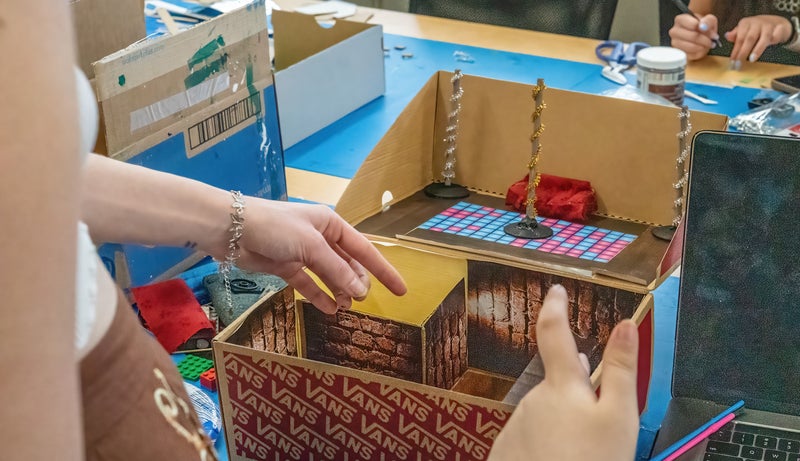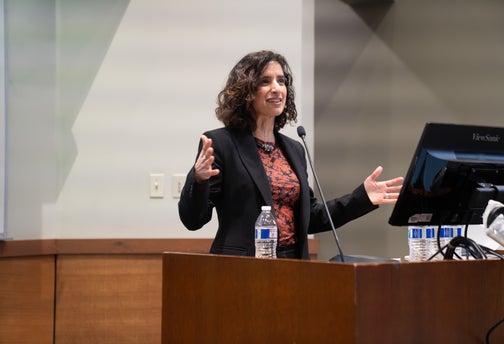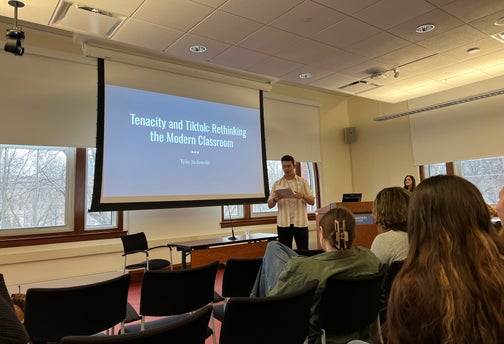Examine our social and legal responses to crime and disorder, especially for those who live and work in underserved communities.
In the Criminology and Criminal Justice (CCJ) program, you will examine the causes of crime and societal and legal responses to law breaking, while critically evaluating the functioning of the U.S. criminal justice system. In line with Emmanuel College's social justice mission, your studies will highlight the influence of social factors such as race, ethnicity, and gender on experiences involving the criminal justice system. You will also learn about the effects of these dynamics on all parties involved in the criminal justice system, including law enforcement, defendants, victims, and communities.
Your studies will extend to assessing current policies and proposed reform efforts within the current criminal justice landscape, with a particular focus on their impact on underserved communities and a commitment to diversity, equity, and inclusion.
This program is designed to provide you with a comprehensive understanding of the practical and ethical considerations in criminology and criminal justice. Our aim is to equip you with critical thinking skills necessary for the dynamic and continually evolving careers in this growing field.







